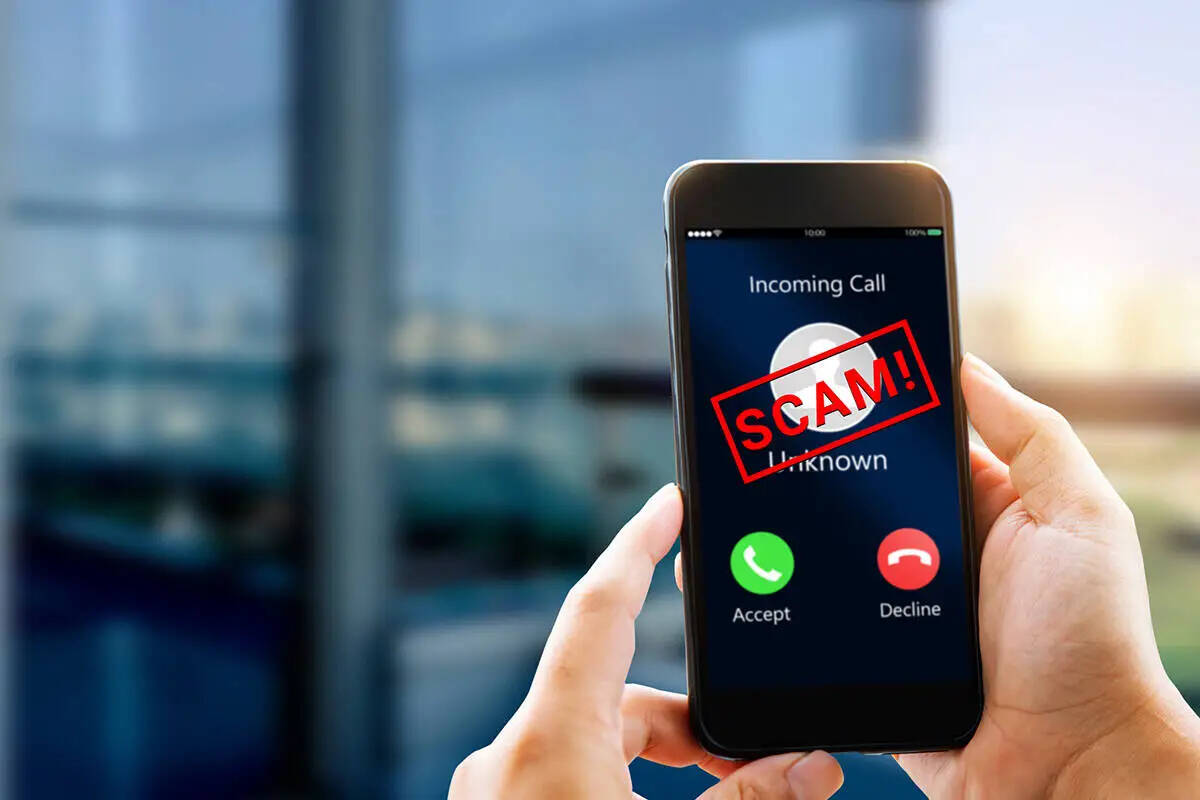What you need to know to avoid becoming scam victim
Call it an unfortunate side effect of the world’s increasingly online modern existence or maybe just the last examples of a phenomenon as old as civilization but reports of scams are on the upswing.
As recently reported in the Boulder City Review, cases in which someone attempts to sell property that belongs to someone else are becoming increasingly common. Additionally, city officials recently reported an increase in telephone scams that have directly affected BC residents.
The former, known as “vacant lot fraud” or “seller impersonation fraud,” is characterized by bad actors who impersonate the owners of a property or vacant lot and attempt to sell it for their own profit.
Unsuspecting owners, eager buyers and even licensed real estate and insurance professionals guiding the transactions can all unknowingly end up as victims in these elaborate identity theft schemes. The best way to protect yourself from this rising threat is to understand how the scam works, know the red flags to look out for, and the precautions you can take.
How the scam works
Scammers search public records to identify owners of real estate that is free of a mortgage or other liens, most often targeting vacant lots and investment, vacation or rental properties that are non-owner occupied. The scammer then poses as the owner and contacts a real estate agent to list the property for sale. Once an offer is made, the scammer quickly accepts it, then sends falsified documents to the title firm or closing attorney. The closing proceeds are then transferred to the scammer leaving the fraud typically undiscovered until transferring documents are recorded with the applicable county.
According to the American Land Title Association (ALTA), homebuyers and licensed professionals alike should consider conducting additional due diligence or halt a transaction if they see these potentially suspicious seller behaviors:
· Seller is difficult to reach via phone or refuses to meet via video call, only communicating via text or email
· Seller sets listing price lower than the current market value and wants a fast cash sale with little or no fee negotiation
· Seller refuses to attend signings; always claiming to be out of town
· Seller requests to use their own notary
· Seller demands proceeds be wired
· Seller has a different address than the owner’s address or tax mailing address
· Seller refuses or is unable to complete multi-factor authentication of identity verification
ALTA advises steps during the transaction to help thwart scammer’s attempts early on including: contacting the seller directly at an independently discovered and validated phone number, sending mail to the seller at the address listed on tax and property records and asking the seller’s real estate agent if they have personal or verified knowledge of the seller’s identity.
Telephone scams may be less complex but they are also on the rise and directly affecting Boulder City residents, often preying on the elderly.
The latest incident involved someone claiming to be with the bank’s fraud department called a BC resident and obtained login information for the person’s online banking account and then transferring more than $6,000 from the victim’s account.
“The victim said the phone number matched the bank’s customer service phone number, so it seemed valid,” said Boulder City Police Chief Tim Shea. “These con artists use spoofing technology to make a call appear to be from a legitimate source. The victim said the bank couldn’t stop the fraudulent wire transfer, leaving the victim with little recourse.”
“Spoofing” refers to using tech to make a phone call, text message or email appear to have come from a source other than the one which actually is in use. The technology is commonly used by both criminal scammers and persistent telemarketers.
Other scams commonly reported include calls from a “utility company” claiming it will shut off power without immediate payment. Officials note that the Boulder City Utilities Department does not call residents and request bank account information or gift cards for payment.
According to recent reports from BCPD, residents are also receiving calls claiming that a relative, often a grandchild, has been arrested or involved in an accident and demanding immediate payment. In one recent case, the demand was couched as a ransom demand with the caller claiming they had kidnapped the potential victim’s daughter.
In that case, the person called to make sure his daughter was safe and then contacted police. But in another recent case, the victim gave more than $3,000 in cash to a “courier” after receiving a report that his grandson had been involved in an accident.
These are not new scams, but they are making rounds in Boulder City again. These scammers often prey on the elderly. City officials recommend sharing this information with family, friends and neighbors who could be victims of such scams and note that the American Association of Retired Persons (AARP) has up-to-date information on the latest rip-offs at www.aarp.org/money/scams-fraud/about-fraud-watch-network/.
If you receive a call asking for money, do not provide any personal information.
“Hang up on the caller immediately, as these thieves will try to keep you on the phone in an effort to convince you to get gift cards,” said Shea. “You can report it using the Boulder City Police Department online reporting form. Unfortunately, finding these thieves can be difficult, especially as many are committing the crime from outside the U.S.”
To file a report with Boulder City Police Department, use this link: http://bcnv.org/FormCenter/Contact-Forms-3/Police-Department-65.
















